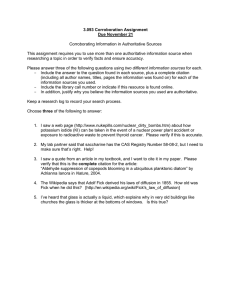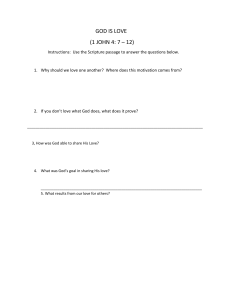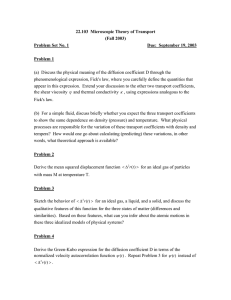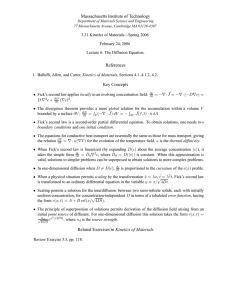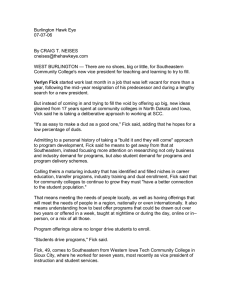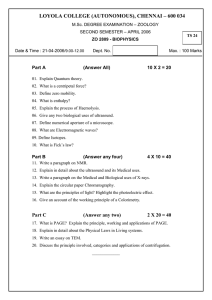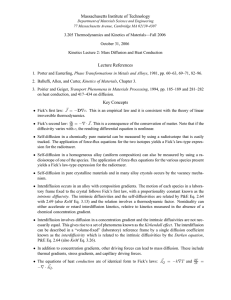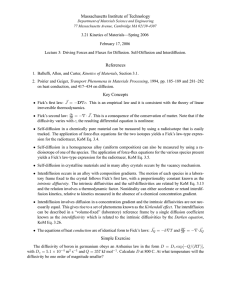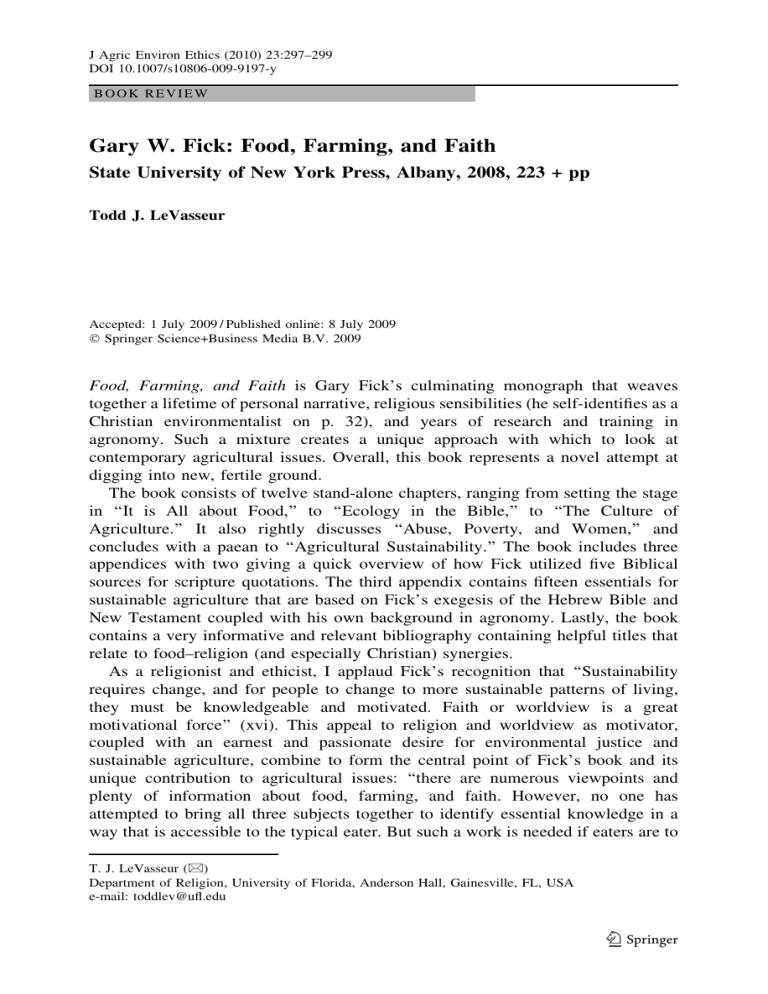
J Agric Environ Ethics (2010) 23:297–299 DOI 10.1007/s10806-009-9197-y BOOK REVIEW Gary W. Fick: Food, Farming, and Faith State University of New York Press, Albany, 2008, 223 + pp Todd J. LeVasseur Accepted: 1 July 2009 / Published online: 8 July 2009 Springer Science+Business Media B.V. 2009 Food, Farming, and Faith is Gary Fick’s culminating monograph that weaves together a lifetime of personal narrative, religious sensibilities (he self-identifies as a Christian environmentalist on p. 32), and years of research and training in agronomy. Such a mixture creates a unique approach with which to look at contemporary agricultural issues. Overall, this book represents a novel attempt at digging into new, fertile ground. The book consists of twelve stand-alone chapters, ranging from setting the stage in ‘‘It is All about Food,’’ to ‘‘Ecology in the Bible,’’ to ‘‘The Culture of Agriculture.’’ It also rightly discusses ‘‘Abuse, Poverty, and Women,’’ and concludes with a paean to ‘‘Agricultural Sustainability.’’ The book includes three appendices with two giving a quick overview of how Fick utilized five Biblical sources for scripture quotations. The third appendix contains fifteen essentials for sustainable agriculture that are based on Fick’s exegesis of the Hebrew Bible and New Testament coupled with his own background in agronomy. Lastly, the book contains a very informative and relevant bibliography containing helpful titles that relate to food–religion (and especially Christian) synergies. As a religionist and ethicist, I applaud Fick’s recognition that ‘‘Sustainability requires change, and for people to change to more sustainable patterns of living, they must be knowledgeable and motivated. Faith or worldview is a great motivational force’’ (xvi). This appeal to religion and worldview as motivator, coupled with an earnest and passionate desire for environmental justice and sustainable agriculture, combine to form the central point of Fick’s book and its unique contribution to agricultural issues: ‘‘there are numerous viewpoints and plenty of information about food, farming, and faith. However, no one has attempted to bring all three subjects together to identify essential knowledge in a way that is accessible to the typical eater. But such a work is needed if eaters are to T. J. LeVasseur (&) Department of Religion, University of Florida, Anderson Hall, Gainesville, FL, USA e-mail: toddlev@ufl.edu 123 298 T. J. LeVasseur be empowered as change agents of the food system. At least two things are required to empower them: They need knowledge, not just information, and they need motivation’’ (4). This charge is followed up elsewhere in Fick’s introductory chapter, where he writes, ‘‘What we eat and how we eat is full of meaning about what we believe and what we value…a little reflection shows that the biological, social, and spiritual associations of food are always present. All aspects of life are interconnected with food’’ (12). In essence, Fick is betting that by making an appeal to Biblical scripture and seeing what the Hebrew Bible and New Testament have to say about agriculture, and specifically sustainable agriculture, then people of faith will be motivated to support sustainable agriculture by their food purchasing decisions. The merits of this approach shine in Fick’s layman work with scripture. He finds abundant evidence in scripture for diverse, contemporary agricultural issues such as land and soil health, climate, creation, poverty, pests, treatment of women and workers, animal husbandry, and the Sabbath rest and how these scriptural topics apply to modern agricultural issues. His interpretation of scripture is both intriguing and, as a non-specialist (both Fick and myself), seems to be well within the ballpark of exegetical respectability and believability. One benefit of Fick’s work with scripture is that he has done the legwork of culling relevant Biblical quotes that pertain to agriculture so that others do not need to repeat this labor. He also provides an interesting, insightful, and fresh ecological reading of Genesis 1 and deftly shows how this relates to issues of sustainable agriculture; this is of course the much maligned chapter that includes the biblical creation story and its codifying of human–nature interactions. Here is where a problem arises, however. Fick makes the assumption that humans (and his audience seems to be Anglos in the Western Hemisphere) are motivated by religious beliefs without offering any corroborating evidence or statistical figures to support this claim. In other words, he has ‘‘mined’’ scripture to make the case for sustainable agriculture without presenting strong enough support that Americans are in fact motivated by scripture in their daily lives, let alone in their eating habits. In part, Fick is hoping to open the dialogue between food, farming, and faith, and this is to be loudly and roundly applauded, but one could easily argue that there are passages of scripture that justify deleterious interactions with agricultural lands. It could also be argued that the Fertile Crescent, where the Hebrew Bible and New Testament were in large part edited and pieced together, is now a desert. Thus it can be said that humans have been ill regarding for centuries the agricultural advice that Fick has found in said biblical pages! Despite this ‘‘leap of faith’’ about the efficacy of biblical scripture to positively impact sustainable agriculture (which could be nuanced by citing relevant social science and religious studies literature and survey results), Fick’s book is a valued addition to numerous fields. He helps open the debate to include theocentric, Christocentric, and anthropocentric stewardship perspectives. He even takes on the sticky subject of animal husbandry and its role in sustainable agriculture and the even touchier subject of human population numbers. He also goes into vegetarianism, but does make the mistake of equating vegetarianism with a soy-based diet when there are those in the vegetarian community who are advocating a post-soy diet. 123 Book Review 299 Fick ends the book by positing that, ‘‘Religious and ethical issues are as much a part of the tapestry of agricultural sustainability as are economics and farm labor issues or the selection of crop varieties and tillage machinery’’ (127). This leads him to offer a new metaphor for agricultural sustainability, a one-legged stool metaphor that includes biological/ecological, social/economic, and religious/spiritual components. It is a rich conclusion that comes after a very personal, meditative plea for changing the way we related to and value food and how it is grown. If the academic discussion of religion–food–agriculture issues grows, then this book will rightly be seen as one of its seeds. 123
